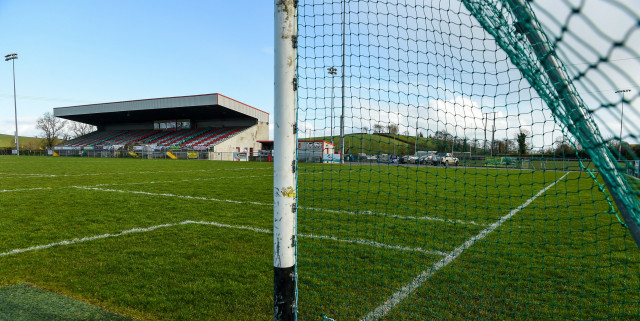Cumann Lúthchleas Gael Uladh
Cumann Lúthchleas Gael Uladh

Many of our GAA clubs have been in existence for many decades, with the traditions of the club being passed on from generation to generation; volunteers working hard for the club of today, and for the club of tomorrow.
Although much of our time as club volunteers is taken-up with day-to-day activities; getting teams on the pitch, generating funds, upkeep of facilities, and so on; it has become increasingly important to acknowledge what path the club is on, and where the club is headed. It is vital to have a “vision” for the club, but it is imperative that the vision is a shared one.
The Club Planning Programme aims to provide GAA Clubs with a step-by-step approach to developing a Club Plan for a 3 year period. It involves the deployment of a trained Club Planner to guide a Club on the process and facilitate a Club Planning Workshop for members of the club and its wider community.
The programme also features practical guidelines, checklists, and templates that are based on best practice in a planning context. Each club that engages in the programme will address these four questions:
Planning helps a club to:
In addition, engaging in the planning process will encourage more people to get involved with volunteering and ensure that the Club is using its resources as best as possible.
Clubs should appoint a Club Plan Steering Committee to lead-out on the programme, and having done this they should contact their County Development Officer / Ulster GAA who will appoint a Club Planner to assist the club in moving forward. Five people to chair each of the Focus Groups will be appointed at a later stage.

To plan for the future the GAA club must first take stock of where it is coming from, and of the club’s fundamental purpose. At an Association level, the GAA’s mission statement states “the GAA is a community based volunteer organisation promoting Gaelic games, culture, and lifelong participation”. When beginning any planning process it is important to understand the position in which the club currently finds itself.
This can be determined by carrying out a SWOT analysis: this will help to identify the club’s Strengths, Weaknesses, Opportunities, and Threats. It will provide the Club with a clear understanding of things it does well, things it could do better, and key issues facing the Club. It will provide the Club with a framework within which it can best allocate its resources; human, financial, and physical.
A focal event in the process is the Planning Workshop. This is imperative as it allows the Club to get feedback from all stakeholders as to their vision for the club in the future, and makes-up an important element of the SWOT analysis mentioned above. The Planning Workshop should be well publicised and well organised to attract as many people from the wider community as possible. From there Focus Groups are finalised and work begins in implementing a plan to bring the club’s vision to fruition.
The Club Development Plan does not have to be a huge document, and many good plans need not be more than 10 pages in length. The need for having a Club Development Plan may be to draw-down a grant or to satisfy Club Maith criteria, but the intrinsic motivation for planning ahead makes sense for no other reason than to make sure the club is prepared for the future and has a structured approach in achieving its aims. Club Officers will change over the years but the Club Development Plan should remain as the agreed “way forward” for the Club despite personnel changes.
It is vital that the progress made on the plan is detailed at least once a year; a report at the AGM normally suffices for this. It is also important that any goals not achieved are re-evaluated as the landscape changes. This ensures that the Club Development Plan does not become a defunct document as time passes but rather it remains as the road-map for the Club.
Should your club wish to get involved in the Club Planning Programme please contact your County Development Officer or Fionntan O’Dowd at Ulster GAA on fionntan.odowd.ulster@gaa.ie.